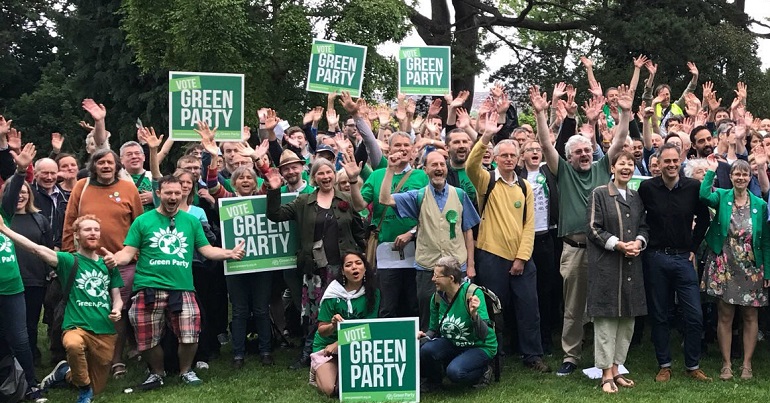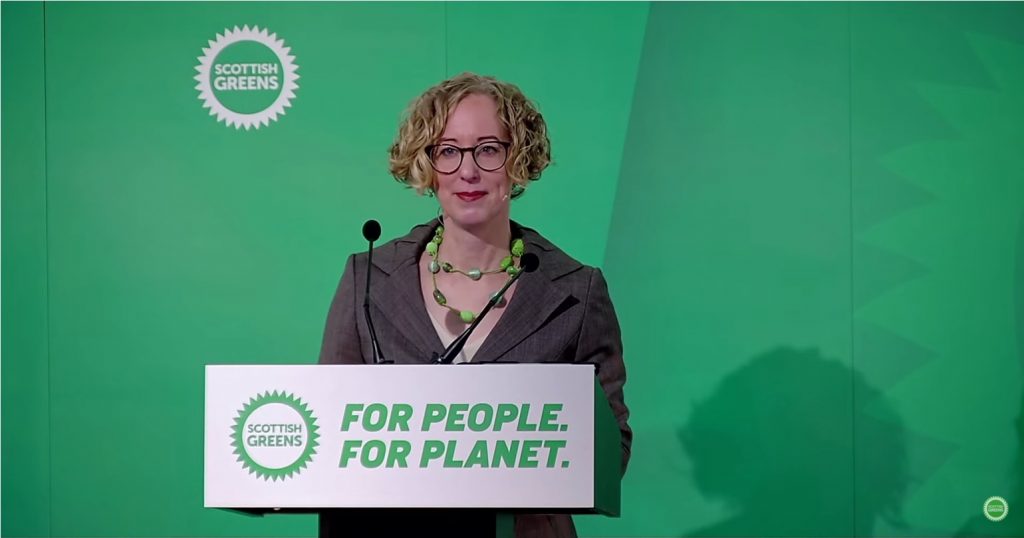Councils, the climate emergency and the Green Party

With six months to go until a bumper round of local elections, where next for Green Party councillors and campaigners?
Based on my experience of working with Green Party of England and Wales councillors, I see two key elements to what we might call a Green municipalism for 2021.
- Climate Action Plans that lead with the ‘co-benefits’ – the potential for positive impacts on lives and livelihoods – in order that they become ‘co-productions’ with our communities.
- Robust local partnerships with key institutions as well as community representation through which council leaders can invest, influence, pressure, and cajole for a local green recovery.
From co-benefits to co-productions
Here’s a thought experiment: Could a climate action plan be written that did not mention the climate? Let’s take one sector. For transport, the plan could look something like this.
- Proposal: Low Traffic Neighbourhoods (LTNs); rapid investment in walking and cycling; better, cheaper, more responsive, public transport; rapid conversion to electric or hydrogen vehicles; planning policies that eliminate car dependency.
- Justification: safer streets; cleaner air; better physical and mental health; local regeneration of neighbourhood living that includes work, rest, play and shopping.
This exercise could just as easily be repeated for land use, building and improving social housing, even for renewable energy production, which is now fully justifiable as a community income source.
Our councillors are all too familiar with how the urgency of climate action is forgotten. This is not surprising. Many things are just more visible. Job losses due to COVID-19, inequality in income and wealth, lack of affordable homes, institutional discrimination and so on. This is also true for voters. So continued deep popular support for radically reshaping how we do things to make them carbon neutral depends on such changes really being about improving lives now. Given this, community involvement in shaping and making change happen can follow naturally. The language for this is not great at present: talk of ‘co-benefits’ is clunky. Perhaps we can just talk about ‘benefits’?
Local green recover partnerships
Here’s another thought experiment: how would we transform local economies and local democracy if there wasn’t a climate emergency? We are for stronger and deeper local democracy and for local economies that are fairer and sustainable. We live in the most politically centralised of the advanced democracies, with a dangerously influential corporate sector, so this is a huge challenge, but we do have some local levers.
Councils can make their own spending work better. ‘Progressive procurement’ can nurture local jobs, firms and co-ops and keep ‘wealth creation’ local, instead of seeing profits extracted by corporations with often hidden environmental and social costs. Contracts can then be designed for carbon neutrality, which, remember, will have further knock-on benefits.
Living wage policies are one way to develop fairer local employment. Privatised council services have generally made matters worse for workers, and often ended up as costly for councils. Bringing services back in-house is a win for both. Working methods can then be transformed to be carbon neutral.
Councils set a policy and infrastructure framework for others, but we know this is hugely constrained by government. So, councils must also act as influencers and convenors, bringing together partnerships of other key players to push for better.
Part of this is about finance. Green New Deal thinking tells us that borrowing to spend on greening our lives and livelihoods is necessary and sensible. This applies locally too, but the institutions for this are often missing. Councils can work together to support new local green investment institutions.
Councils need to win over key economic players to ‘community wealth building’. We are seeing these ‘anchor institutions’ being formed into networks with the potential to transform local economies. So far these have been parallel but distinct to the development of Climate Action Partnerships. These too bring together key players. Council officers and leading councillors with ambitious climate action plans need to drive these partnerships. This isn’t always the case. There is an argument for making the two types of networks one and the same. At the very least they need to be talking to each other. At times these partnerships should probably be uncomfortable, as councils should be forcing the pace with those falling behind. We have seen with the emergency measures for social distancing that clear leadership makes all the difference between winning sufficient support to implement robust change, or crumbling at the first hint of opposition.
How – or indeed whether – this translates into the language of election newsletters is for others to work out. The language of the Green New Deal or Community Wealth Building, even ‘co-benefits’ is not very appealing. But having clarity about this approach can prepare our councillors for power or opposition and might give local parties specific demands to fight for, helping to convince voters that we offer a better future for both their neighbourhoods and their livelihoods.
Julian Dean is a Shropshire Councillor and the Climate Action Officer for the Green Party of England and Wales, tasked with supporting GPEW Councillors.
PS. We hope you enjoyed this article. Bright Green has got big plans for the future to publish many more articles like this. You can help make that happen. Please donate to Bright Green now.
Image credit: Bristol Green Party – Creative Commons




Leave a Reply